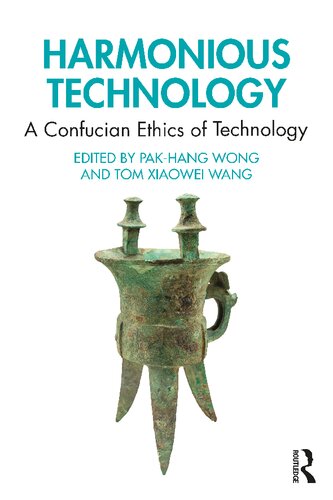

Most ebook files are in PDF format, so you can easily read them using various software such as Foxit Reader or directly on the Google Chrome browser.
Some ebook files are released by publishers in other formats such as .awz, .mobi, .epub, .fb2, etc. You may need to install specific software to read these formats on mobile/PC, such as Calibre.
Please read the tutorial at this link: https://ebookbell.com/faq
We offer FREE conversion to the popular formats you request; however, this may take some time. Therefore, right after payment, please email us, and we will try to provide the service as quickly as possible.
For some exceptional file formats or broken links (if any), please refrain from opening any disputes. Instead, email us first, and we will try to assist within a maximum of 6 hours.
EbookBell Team

4.1
50 reviewsTechnology has become a major subject of philosophical ethical reflection in recent years, as the novelty and disruptiveness of technology confront us with new possibilities and unprecedented outcomes as well as fundamental changes to our "normal" ways of living that demand deep reflection of technology. However, philosophical and ethical analysis of technology has until recently drawn primarily from the Western philosophical and ethical traditions, and philosophers and scholars of technology discuss the potential contribution of non-Western approaches only sparingly. Given the global nature of technology, however, there is an urgent need for multiculturalism in philosophy and ethics of technology that include non-Western perspectives in our thinking about technology. While there is an increased attention to non-Western philosophy in the field, there are few systematic attempts to articulate different approaches to the ethics of technology based on other philosophical and ethical traditions. The present edited volume picks up the task of diversifying the ethics of technology by exploring the possibility of Confucian ethics of technology. In the six chapters of this volume, the authors examine various ideas, concepts, and theories in Confucianism and apply them to the ethical challenges of technology; in the epilogue, the editors review the key ideas articulated throughout the volume to identify possible ways forward for Confucian ethics of technology.
Harmonious Technology revives Confucianism for philosophical and ethical analysis of technology and presents Confucian ethics of technology as another approach to the ethics of technology. It will be essential for philosophers and ethicists of technology, who are urged to consider beyond the Western paradigms. More broadly, the volume will be of interest to students and scholars in the fields of philosophy, science and technology studies, innovation studies, political science, and social studies.